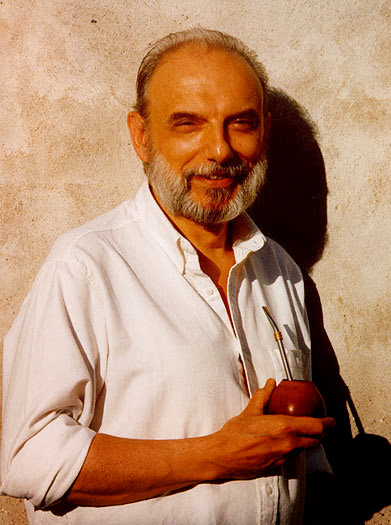 La siguiente entrevista al escritor argentino Raúl Orlando Artola, fue realizada electrónicamente por Luciana Andrea Mellado, durante los días 12 al 20 de junio de 2013. Se efectuó en el marco del Proyecto de Investigación trianual “Patagonia se dice en plural: identidades y geografías imaginarias en la literatura patagónica argentina y chilena (1983 – circa 2012)”, que comenzó a desarrollarse en el presente año, en la Facultad de Humanidades y Ciencias Sociales, de la UNPSJB. La entrevista, la primera de una serie que se prevé continuar a lo largo del Proyecto, permite ampliar y profundizar el caudal bibliográfico específico sobre literatura y cultura patagónicas y dar cuenta de la diferencia que existe, epistemológica y políticamente, entre hablar sobre y hablar desde, entre ser objeto del discurso y sujeto discursivo. Con este diálogo, pretendemos reafirmar la importancia de la localización geocultural en las prácticas investigativas, la valoración de las formas locales de conocimiento y la necesidad de conocer las particularidades del campo intelectual regional.
La siguiente entrevista al escritor argentino Raúl Orlando Artola, fue realizada electrónicamente por Luciana Andrea Mellado, durante los días 12 al 20 de junio de 2013. Se efectuó en el marco del Proyecto de Investigación trianual “Patagonia se dice en plural: identidades y geografías imaginarias en la literatura patagónica argentina y chilena (1983 – circa 2012)”, que comenzó a desarrollarse en el presente año, en la Facultad de Humanidades y Ciencias Sociales, de la UNPSJB. La entrevista, la primera de una serie que se prevé continuar a lo largo del Proyecto, permite ampliar y profundizar el caudal bibliográfico específico sobre literatura y cultura patagónicas y dar cuenta de la diferencia que existe, epistemológica y políticamente, entre hablar sobre y hablar desde, entre ser objeto del discurso y sujeto discursivo. Con este diálogo, pretendemos reafirmar la importancia de la localización geocultural en las prácticas investigativas, la valoración de las formas locales de conocimiento y la necesidad de conocer las particularidades del campo intelectual regional.
Abstract: The following interview to the Argentine writer Raúl Orlando Artola, was realized electronically by Luciana Andrea Mellado, from June 12th to June 20th, 2013. It was done in the frame of the three-years researching project 'Patagonia se dice en plural: identidades y geografías imaginarias en la literatura patagónica argentina y chilena (1983 - circa 2012)', wich began to develop in the present year, in the Facultad de Humanidades y Ciencias Sociales de la UNPSJB. This interview, the first one of a series that we think to continue along the Project, allows to extend and to deepen the specific bibliography on Patagonian literature and culture and to show the difference that exists, epistemological and politically, between 'speaking about' and 'speaking from' a place, between being an object of the speech and being a discursive subject. With this dialog, we try to reaffirm the importance of the geo-cultural location in the research practices, the valuation of the local forms of knowledge, and the need to know the particularities of the intellectual regional field.


